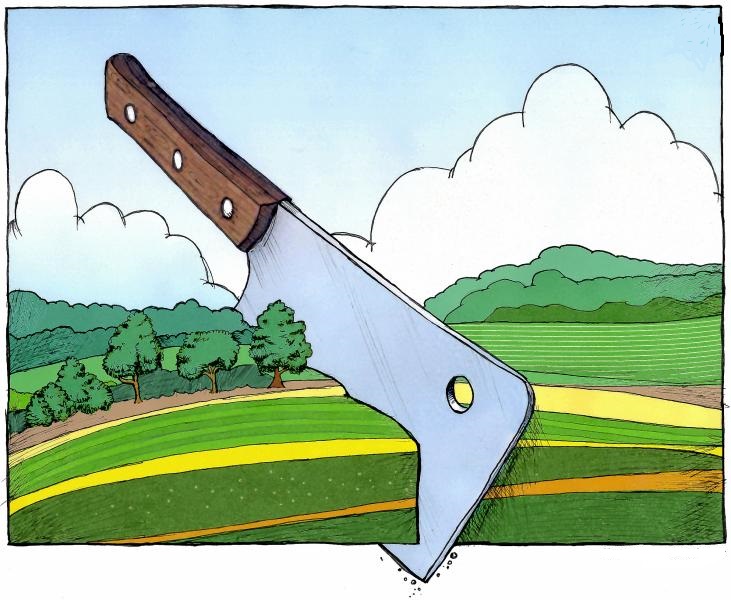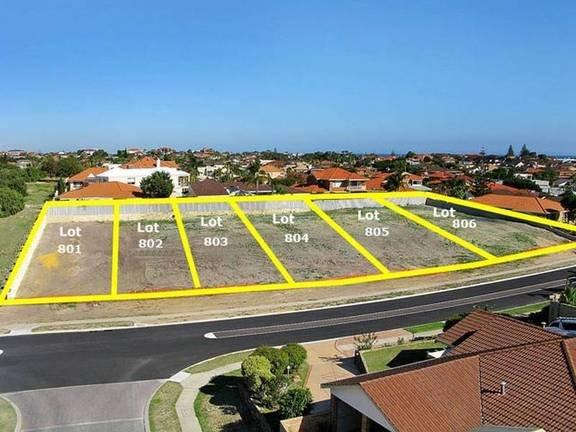Principal Place of Residence Exemption Loss if Sold While Overseas Summary of how the Principal Place of Residence (PPR) Exemption is impacted by moving overseas. When Australian homeowners move overseas and become non-residents for tax purposes, selling their...
Property Development – Tax Issues to Consider
Property development could it be just a “mere realisation of an asset”?
A “mere realisation of an asset” implies that the profits made are subject to capital gains tax with the benefit of the 50% discount, whereas otherwise would be seen as an enterprise, and subject to tax as ordinary income, at the owners full marginal tax rate.
A recent Private Binding Ruling issued by the Commissioner of Taxation has shed some light towards their interpretation of property developments and their classification. Specifically, the ruling highlights a point of difference between whether income is ordinary income or capital gains.
Facts
In the ruling, the taxpayer’s had owned a large rural property for many years. In that time, they had constructed a principal residence, operated a small farming business and had split the land to build a second residence for family members.
After a mine subsidence compensation claim was made by the owners, the primary production business stopped. Later, the land was re-zoned by the council allowing the subdivision of one acre blocks.
After this sequence of events, the owners decided to contract a developer to undertake a substantial subdivision project. Under the project, the developer would undertake all the activities over a period of time from initial commencement to settlement with contracted purchasers. Importantly, the developer was going to undertake the Development Application, after such time as surveying and land designs were completed.
Questions
From these facts, the ATO was asked to rule on what classification of income was appropriate. Namely, whether the profit was:
- • ordinary income from carrying on a business of property development
- • ordinary income as a result of an “isolated transaction” carried out for profit, or
- • Statutory income under the capital gains tax provisions.
Decision
The decision ultimately was that the sale of land was a capital gain. As the developer would undertake all of the activities associated with the development, there is an adequate separation of control that deems the proceeds to be a mere realisation of an asset.
Client opportunities
Paragraph 6 of Taxation Ruling TR 92/3 outlines that profit from an isolated transaction will depend on circumstances such as whether:
- (a) the intention or purpose of entering into the transaction was to make a profit, and
- (b) The profit was made in the course of carrying on a business or commercial transaction.
Alternatively, it can easily be argued that the taxpayers entered into the transaction once the mine subsidence and council re-zoning took place. Therefore, to knock down the property, subdivide and sell (via an intermediary) was intended to make a commercial profit after a significant change from a hobby farm primary residence.
However, the Commissioner has essentially ruled that, in totality, the taxpayer’s intention when they entered into the transaction was for a main residence. #
A significant factor for the decision to subdivide (or develop) the land was due to a council re-zoning. While this wasn’t the only factor, it was nevertheless a decision outside the taxpayer’s control.
An opportunity exists for landowners whose property has changed significantly on re-zoning. It can be argued that, in this instance, the taxpayers took advantage of a change in governmental policy for the mere realisation of an asset. Many lands, especially in capital cities, may have recently changed purpose due to re-zoning, and an argument may exist to say that property developments in these instances are on capital account, rather than on revenue.
#where the profit-making transaction involves the sale of property, it is usually, but not always, necessary that the purpose of profit-making exist at the time of acquiring the property.
Points to Consider
- Land holdings if sold as is, would in many cases be exempted from any tax payable under various exemptions for principal place, or farm land. However the sale may not realise the full potential value of the land that a developer could exploit.
- However if the land had been owned for a period of time, with no original intention to subdivide, opportunities could arise to benefit from the ATO treating the subdivision as a capital event rather than ordinary income.
- The fact the land owner, tried to distant themselves from the development work, by engaging a developer, appeared to allow the ATO to see the development as an opportunity to merely realise the best value for the land on a capital account.
- Many such developments are sold to a developer with or without a DA.
- Regardless how the development is conducted, there is significant accounting, apportionment, GST Margin Scheme issues to be considered separately on the sale of new residential land to the ultimate home owners.
Copyright CCH & Garry Wolnarek
Australian Homeowner Moving Overseas and Selling Their Principal Place of Residence (PPR) – Avoiding a $295,200 CGT Bill
Principal Place of Residence Exemption Loss if Sold While Overseas Summary of how the Principal Place of Residence (PPR) Exemption is impacted by moving overseas. When Australian homeowners move overseas and become non-residents for tax purposes, selling their...
Investment Property Capital Gains Tax (CGT) Calculation with PPR Transition
Having an investment property prior or posted to it being a principal place of residence has tricky CGT Calculations. Capital Gains Tax (CGT) is an essential consideration for property owners when selling a property used for different purposes over time. This blog...
Understanding Land Tax in Australia
Picture of a vacant block of land to illustrate it may be subject to land tax What is Land Tax? Land tax is a state and territory-imposed tax on the unimproved value of taxable land owned by individuals, companies, and trusts. It is calculated annually based on a...
Tiny homes have excellent rental yields, income streaming and tax minimisation strategies. How do they compare to a Granny Flat?
What are the tax and investment considerations for a Granny Flat above versus a Tiny Home below? Income Tax Return Reporting - Income Streaming Tiny Homes Tiny home ownership does not have to follow the ownership interest of the underlying property ownership. For...
Easier for Victoricans to build Granny Flats from December 2023.
Secondary Dwelling From December 2023 the Victorian Government has passed planning changes to make it easier to build Granny Flats - or "small secondary dwellings", on existing homes. The Victorian Premier Jacinta Allan revealed that planning permits will no longer be...
Property Investors to ensure income and expenses are correct.
The ATO is particularly targeting property investors that are not using the help of a specialist property tax accountant like Umbrella Property Accountant, due to the high error rate being discovered from ATO Audits. The ATO Audits into self-preparers have uncovered...
Residential Rental Caps & Vacancy Taxes will help supply for tenants?
Gold Coast - Example of the Housing Rental Competing Forces Many Apartments are sitting empty most of the year, including an entire beachfront tower. Gold Coast mayor Tom Tate cited an entire high-rise sitting empty in the triple tower Jewel development at Surfers...
Victorian Labour Government Land Tax Hikes to push up Rents
Victoria was the most locked-down state in Australia, if not the world during Covid, resulting in the Victorian Government accruing over $30 Billion in debt to keep the doors closed. Victorian Statement Government wants to raise $8.6 Billion over the next 4 years by...
Joint Venture(JV) Tax Considerations for Property Developers
Joint Venture tax understanding for property developers in Australia Joint Venture Agreement What is a (JV) for Property Development A joint venture (JV) is a cooperative agreement between two or more parties in which all parties contribute their resources (such as...
Inheritance of the Main Residence CGT Exemption Options Before & After 2 Years
When the deceased person's home has a mixed history of being a principal home and a rental, combined with the fact the estate sells the otherwise principal home after 2 years, the CGT is not so easy to understand for the family left to deal with how and if CGT is...





